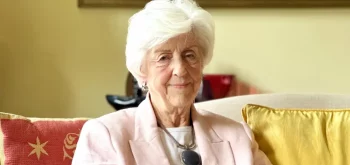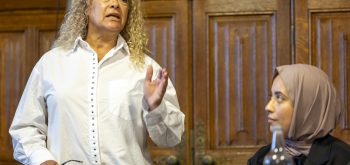More than £9m has been paid in compensation to 16 people wrongly convicted in Northern Ireland since 2010. The figures, obtained by the BBC through freedom of information requests, do not say how many people have applied for compensation in Northern Ireland since 2010 however 84 people were wrongfully convicted between 2007 and 2017.
To be awarded compensation by the Department of Justice in Northern Ireland, a conviction must be successfully overturned on the basis of fresh evidence showing beyond reasonable doubt that there has been a miscarriage of justice. This follows the controversial tightening up of the regime by the Coalition Government in 2014 which means it is increasingly difficult to be eligible.
Campaigners argue that this high eligibility threshold is almost impossible to meet without DNA evidence and sometimes, even DNA evidence is not enough. In the case of wrongfully convicted man Victor Nealon, he was refused compensation despite the fact that his conviction had been overturned on the basis of DNA evidence pointing to another perpetrator.
According to a JUSTICE report published last year (Supporting Exonerees), only 17 of at least 197 wrongfully convicted applicants for compensation in England and Wales have been successful since 2010, only five in the last five years and not a single person last year. By contrast, between 1999 and 2004, there were 162 successful applications.
Nealon, along with Sam Hallam, another victim of wrongful conviction denied compensation, challenged the new scheme at the Supreme Court on the basis that it is not compatible with the presumption of innocence but, in January of this year, the Supreme Court dismissed their appeal – see here.
The court service on Northern Ireland said it could not provide a breakdown of why each of the 84 criminal convictions were overturned because of the time and cost involved. Deputy director of the Committee on the Administration of Justice (CAJ), Daniel Holder said there was a public interest in finding out more about why convictions were overturned. ‘I am surprised that this exercise has not been undertaken in order to identify and remedy any emergent patterns,’ he told the BBC. ‘One of the alarming issues from the legacy of our past is the circumstance where information is withheld from prosecutors and the courts to provide cover for the activities of paramilitary informants, who themselves were allowed to operate outside of the law.’
Meanwhile a new radio documentary for the Australian broadcaster ABC compares the compensation regimes for victims of wrongful conviction in the UK, Australia and New Zealand and considered the cases of Sam Hallam and Victor Nealon. ‘There is a presumption of innocence that is said to run through the criminal justice system like a “golden thread” but it is a fraying thread,’ Justice Gap editor Jon Robins told the presenter Damien Carrick. ‘If your conviction is overturned it is very difficult to reinstate the presumption and the Court of Appeal is extremely reluctant to say you are innocent’
Dr Rachel Dioso-Villa, a senior lecturer of criminology from Griffith University in Brisbane, told the programme that there is no set legislation in Australia covering wrongful conviction, which means that there is no eligibility threshold for wrongfully convicted Australians to meet, and they have a number of legal possibilities when it comes to seeking compensation. The system lacks clarity and is unpredictable, she said.
Dioso-Villa looked at 57 cases of wrongful convictions and found that the most successful route for receiving compensation was to apply to the state or territory Attorney General for an ex gratia payment. Almost half of those people (27) applied for ex gratia payments and 17 were successful.
‘We do not know what happens behind the scenes, how they reach their decisions before the awards are given or denied,’ said Dioso-Villa. ‘There is no obligation for the state to give this payment.’ Dioso-Villa also confirmed that there is no guidance or policy to be applied by the Attorney General when making the decisions, it is entirely in their hands.
Presenter Damien Carrick reckoned that New Zealand comes closest to achieving a transparent, consistent and humane system for considering whether or not compensation should be granted.In 2016 Teina Pora, convicted in 1994 of the 1992 rape and murder of Susan Burdett, was awarded a record $2 million compensation payout.
The Minister of Justice in New Zealand normally seeks an independent opinion of a QC or retired judge on whether or not a person is innocent on the balance of probabilities and therefore eligible for compensation.
Nevertheless, there were concerns that the current approach by the government in New Zealand did not always guarantee independence in the system. In a case regarding a man called David Bain, who was wrongfully convicted and subsequently applied for compensation, the Ministry of Justice in New Zealand did not accept the advice of their first independent source which had been favourable to Bain. Instead, they sought a second opinion from someone who the defence lawyers perceived as less sympathetic. ‘We in the defence bar sort of thought that the Minister of Justice perhaps found somebody who may well have been a bit more sympathetic to reviewing and rejecting,’ Marie Dyhrberg QC, a criminal barrister in Auckland, said. ‘That’s forum shopping. How do you retain faith in the independence of the system when you are playing those sorts of games?’
Dyhrberg reckoned that a way forward for compensation regimes is to have an independent body, removed from the political arm, with guidelines as to what they have to look for, answerable to an obligation and a duty to provide fair compensation.







